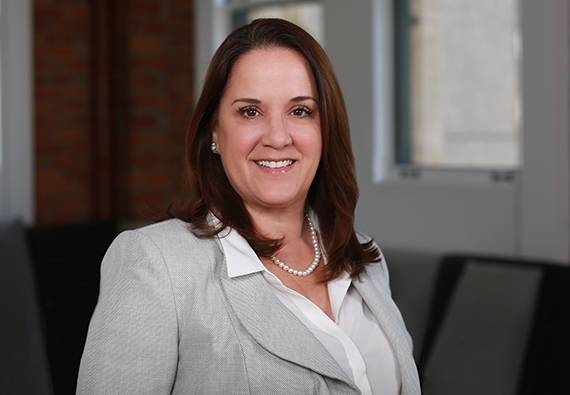COVID Relief Granted to Opportunity Zone Investors
Opportunity Zones are economically-distressed communities designated under the Tax Cuts and Jobs Act to provide private investors that deploy capital there with certain tax advantages, provided those investors, and funds, comply with a vast array of time-sensitive deadlines designed to ensure that economic development in the targeted low-income communities occurs in a timely fashion. Enter the COVID-19 pandemic and its ability to delay even the most diligent and well-intentioned investor or fund manager. This national health crisis negatively impacted investors’ appetite for this asset class, given compliance concerns. In response, the Treasury Department issued Notice 2020-39 to provide relief from those deadlines that are particularly difficult to satisfy in the midst of a pandemic.
1.Extension of 180-day Investment Period
Taxpayers defer recognizing capital gains under the Opportunity Zone program if they invest those gains in a Qualified Opportunity Fund within 180 days of when they would be recognized. The notice extends the time period of any taxpayer whose 180 day period expires between April 1, 2020 and December 30, 2020, to December 31, 2002. As a result, investors have more time to explore potential investment opportunities to determine which, if any, make sense given the current economic climate. Funds also have a larger pool of qualified investors to pitch to, as they can now reach out to investors who realized capital gains as late as October of 2019.
2. Reasonable Cause for Failing 90 Percent Test
Investment of capital gains must be made in a Qualified Opportunity Fund, which holds 90% of its assets in the form of certain businesses, or business property, located, or used, in an Opportunity Zone. This 90% test is measured by averaging the percentage of qualified property held by the fund six months after it is formed, or elects to be a Qualified Opportunity Fund, and the last day of its taxable year. If this 90% investment standard is not satisfied, the Qualified Opportunity Fund must pay a penalty for each month that it fails to meet the standard, unless it can establish that it failed to meet the standard due to reasonable cause.
The notice provides that any fund that fails to satisfy the 90% investment standard on a testing date that falls between April 1, 2020 and December 31, 2020, is automatically deemed to have failed the test for reasonable cause. As a result, any Qualified Opportunity Fund may wait to deploy its capital until June 30, 2021, when the economy may be more stable.
3. 30 Month Substantial Improvement Period
Certain tangible property counts toward satisfying the 90% investment standard if it is used in a trade or business, and it is substantially improved within any 30-month period beginning after the date it is acquired. In order to be deemed to be “substantially improved,” the improvements must double the adjusted basis of such property.
The notice tolls the 30-month substantial improvement period between April 1, 2020 to December 31, 2020, thus extending the period in which to improve the property by up to nine months so that developer may stay compliant in light of construction delays.
4. Working Capital Safe Harbor
A Qualified Opportunity Fund often invests in a Qualified Opportunity Fund Businesses, which generally are active trades or businesses with certain ties to an Opportunity Zone, such owning or leasing at least 70% of its assets in the zone and having at least 50% of its gross income derived from conduct in the zone. The business must hold less than 5% of the average of the aggregate unadjusted bases of its property in the form of certain passive assets known as nonqualified financial property, excluding reasonable working capital assets. Under the current rules, a safe harbor exists that allows businesses to treat working capital assets as “reasonable” when, among other things, a written plan is in place that provides for the expenditure of such assets within 31 months (up to 62 months if certain additional requirements are satisfied). If the business is located in a Federally declared disaster area, an additional 24 months is allowed to expend these working capital assets. Satisfaction of this safe harbor also allows the business to treat any working capital held as cash as qualified property towards satisfying the 70% test.
The notice confirms that, as a result of the President’s emergency (rather than disaster) declaration on March 13, 2020, any Qualified Opportunity Zone Business holding working capital assets under a safe harbor arrangement established before December 31, 2020, is entitled to an additional 24 months to expend such assets. Thus, any such business now has up to 55 months to spend cash held under a working capital safe harbor arrangement.
5. 12 Month Reinvestment Period for Qualified Opportunity Funds
If a Qualified Opportunity Fund sells its qualifying property or receives a return of capital distribution with respect to its qualified investment in other businesses, the sale proceeds or distributions count towards satisfying the 90% investment standard if the fund reinvests them in other qualifying property within twelve months. If any plan to reinvest the proceeds in qualifying property is delayed due to a Federally declared disaster, the fund is entitled to an additional 12 months to reinvest the proceeds, provided that the fund invests the proceeds in the manner originally intended before the disaster.
The notice provides that if any Qualified Opportunity Fund’s 12-month reinvestment period includes January 20, 2020, it has an additional 12 months to reinvest sale proceeds, provided the proceeds are reinvested in the same manner as originally intended. This grants relief to only those limited funds who sold property prior to January 20, 2020.
Essentially, Notice 2020-39 grants relief that may alleviate investor concerns regarding whether a long-term investment in an economically-distressed community in the midst of this crisis is prudent, and permits fund managers an opportunity to remain compliant with the program during this pandemic.


